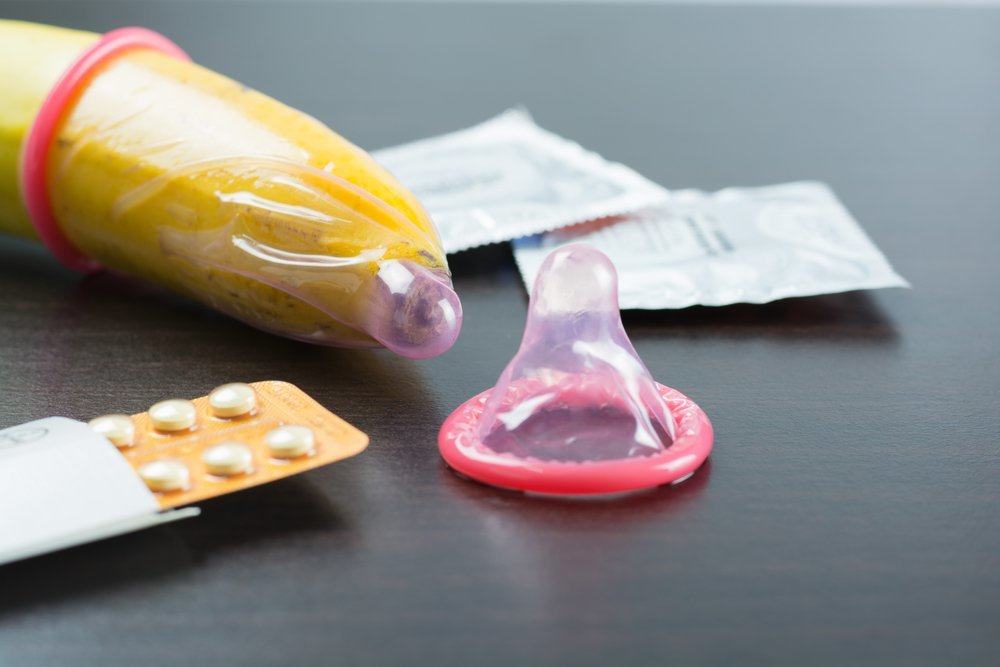Contents:
Medical Video: 5 Simple, Effective Ways of Preventing Unwanted Pregnancy
With so many choices, finding out how to prevent the best pregnancy can be a confusing homework. Do you need protection against sexually transmitted infections? Can the IUD affect your chances of having children in the future? How important is your comfort and costs? How about the effectiveness?
The most important step is to consider your choice with your doctor; You will want to know how each form of contraception can affect your health, says Sara Newmann, MD, assistant professor in the Ob / Gyn department and reproductive science at the University of California San Francisco, reported by Everyday Health. Health factors such as high blood pressure, smoking habits, and a history of breast cancer must all be considered in your choice.
Before you see your doctor, see the list of the most effective methods of birth control in addition to the celibacy (abstinence) below, then ask your doctor for advice about which is best for you.
Which is the most effective way to prevent pregnancy?
1. Permanent sterilization
For women, sterilization can be done in several ways. For example, cutting, binding, or sealing to close the fallopian tube, or remove the uterus (hysterectomy). Sterilization of women serves to stop the egg from going down to the uterus, the place of fertilization. Sometimes, a woman who is undergoing a caesarean birth also simultaneously undergoes a sterilization procedure so there is no need to have twice the surgical procedure.
For men, a vasectomy procedure will keep sperm from going down to the penis, so the production of semen every time you ejaculate will not have a trace of even a little sperm in it.
How effective is this method: You could say 100% effective. Only 0.5% failure rate for any female sterilization method, and 0.15% for vasectomy. That is, there are less than 1 unwanted pregnancy per 100 women in one year from any sterilization process.
All you need to remember: This method is permanent and requires considerable costs - reversal procedures are available, but carry their own risks. You also still need to rely on other contraceptive methods for the first 3 months because sperm is still in the male system and the scar tissue that binds the uterus needs recovery time so far. Sterilization does not protect from venereal disease.
2. Intrauterine Device (IUD)
An IUD is a T-shaped plastic / copper piece placed in the uterus by a doctor. The copper IUD will protect you from pregnancy every 10-12 years, while hormone IUDs can prevent pregnancy for 3-5 years (depending on what brand you use). The copper IUD can even be used for emergency contraception if the device is inserted within five days of unprotected sex.
Both types of IUDs can immediately prevent a pregnancy from being installed by changing the way sperm move in a woman's body so they won't be able to reach the egg. If fertilization occurs (rare case), the IUD will work to make the fertilized egg cannot stick to the uterine wall.
How effective is this method: An IUD is one of the best birth control methods available on the market today with an effectiveness of more than 99.9 percent (a total failure rate of 0.2-0.8 percent). This means there are less than 1 unwanted pregnancy per 100 women using IUDs every year.
All you need to remember: Some doctors recommend an IUD device only for women who have given birth. When the IUD is attached, your uterus will widen; this can cause pain in women who do not have children (if you have a sexually transmitted infection at the time the IUD is inserted, the risk of pelvic inflammatory infection increases). You can have irregular or heavy periods as a side effect of a copper IUD. Finally, even though the IUD is long-term, the effect can still be canceled and you can get pregnant after the device is removed. IUD does not provide protection against transmission of venereal disease.
3. implant KB
Implanted KB is a matchstick-sized flexible rod that the doctor inserts under the skin of the upper arm. Implanted bars can immediately prevent pregnancy by releasing the hormone progestin to change the structure of the lining of the uterus and cervix to make it difficult for sperm to swim to reach the egg. Sometimes, the implant will stop the ovary from releasing new eggs. KB implants work effectively for 3-4 years.
How effective is this method: Implanted KB is very effective. The failure rate only reaches 0.5% so this means that there are less than 1 unwanted pregnancy per 100 women in one year who use implants.
All you need to remember: You can still get pregnant after the implant has been removed. Most women will experience irregular menstruation during the first year of implant placement, but will return to normal on their own. If irregular menstruation remains a problem, doctors can prescribe estrogen to treat it. Implants may not work well for women taking St John Wort herbs, or women who are overweight. Implants do not provide protection against infectious venereal diseases.
4. Injecting KB
The doctor will inject the progestin hormone under the skin of your buttocks or upper arms every three months. Injection KB as a way to prevent pregnancy causes the cervical mucus to thicken and thicken as an obstacle so that sperm cannot swim through the cervix and fertilize the egg. In most women, the injecting hormone also works to stop the ovaries from releasing new eggs. According to the American Congress of Obstetricians and Gynecologists (ACOG), injection KB can reduce your risk of uterine cancer while protecting you from pelvic inflammation.
If you get hormone injections in the first seven days after the start of your period, you are immediately protected from the chance of pregnancy. If you get an injection five days after a miscarriage or abortion, or within three weeks of giving birth, you are also protected from pregnancy. Beyond this case, you need to use other backup KB methods - such as latex or female condoms, diaphragms, sponges, or emergency birth control pills (morning after pill) - during the first week after getting an injection.
How effective is this method: Injection KB is one of the most effective methods of contraception available on the market. For long-term monogamous couples, injection KB is more effective than oral contraceptive use - a 3% chance of pregnancy compared to 9% when using routine birth control pills. This means that there are 6-12 pregnancy rates per 100 women who use injection KB per year so this method will be very effective if used regularly every 12 weeks (4 times a year). However, if you plan to get pregnant in the future, ovulation can only be successful after 3 to 18 months of stopping the injection.
All you need to remember: Injecting hormones are more likely to cause irregular spotting or menstruation than using birth control pills, hormone patches, or vaginal rings, especially in the first 3-6 months. On the other hand, long-term use of hormone injections of more than 2 years in a row can cause a temporary decrease in bone density. The risk of these side effects will increase the longer you depend on the injection. Bones will again grow after you stop injecting KB, but still carry the risk of fractures or osteoporosis in the future. Injection KB does not protect you from sexually transmitted diseases.
5. Birth control pills
Combined estrogen and progestin birth control pills are the most commonly used type of oral birth control. This combination of hormones must be consumed every day to keep the ovaries from releasing new egg cells. The pill also causes thickening of the uterine wall and cervical mucus to make it difficult for sperm to swim through the cervix and fertilize the egg. Many types of oral KB are available on the market. Talk to your doctor about what is best for you.
How effective is this method: Birth control pills are very effective. Combination pills work well when consumed every day. Progestin pills must be taken at the same time every day to keep the hormones in the body stable. Birth control pills have a failure rate of up to 9%. That means, there are less than 1 pregnancy per 100 women every year if they always use birth control pills as directed. On the other hand, about 9 out of 100 women will get pregnant per year if they don't always use birth control pills according to directions - because it's hard to remember to take them regularly.
All you need to remember: birth control pills can cause spotting, breast pain, nausea, and low sex drive. Women who have just given birth must wait at least three weeks before using a combination birth control pill. Combined birth control pills increase the risk of fatal blood clots that can form after giving birth. Women who have had a caesarean birth or who have other risk factors for blood clots, such as obesity, smoking, or preeclampsia must wait six weeks. Combination birth control pills carry a risk of stroke for smokers. Antibiotics can reduce the effectiveness of pills in some women. Talk to your doctor about a backup birth control method as a way to prevent pregnancy if you need to take antibiotics. Birth control pills do not provide protection against venereal disease.
Latex condoms are the only way to prevent pregnancy which is also proven to protect you from transmission of sexually transmitted diseases, including HIV.
READ ALSO:
- 3 of the least effective contraceptive methods prevent pregnancy
- Could It Be Pregnant Even though You Have Used Condoms?
- Can you get pregnant just by rubbing a genitals (Petting)?












